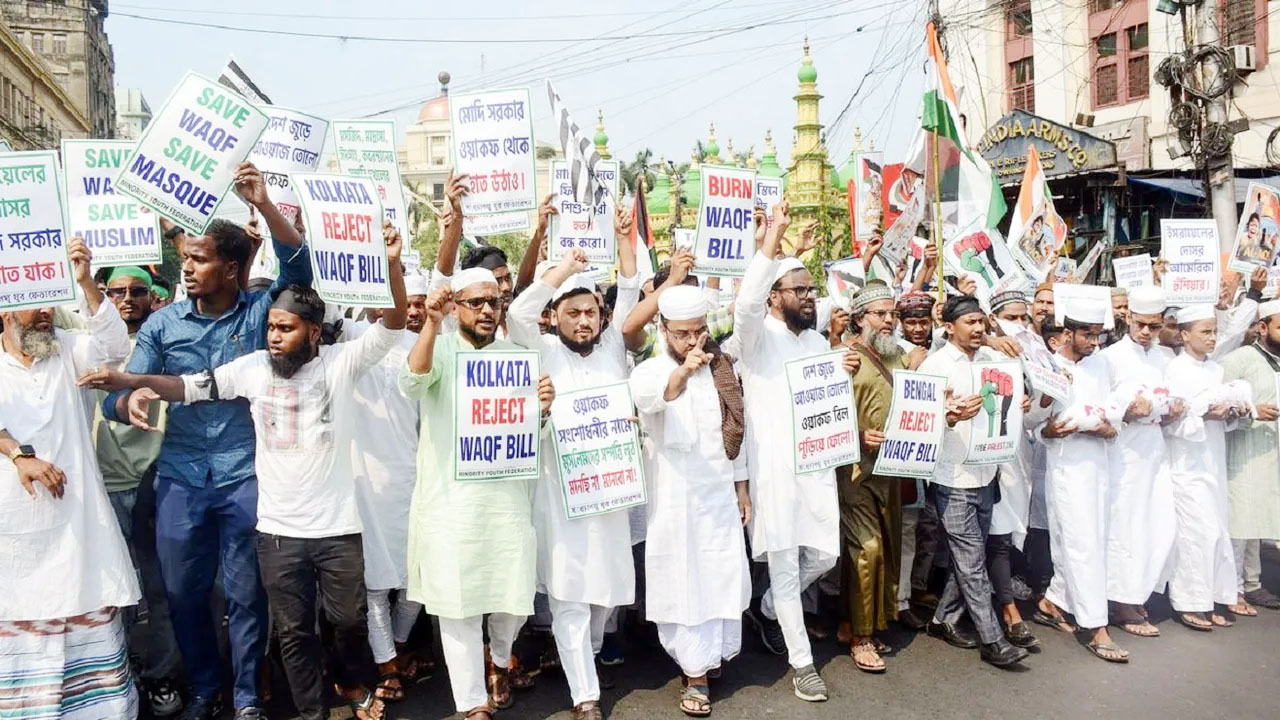
Online Desk: A peaceful protest against the controversial Waqf Bill in Muzaffarnagar, Uttar Pradesh, has led to severe penalties for 24 Muslim individuals. Authorities have demanded that each one of them pay a fine of Rs 2 lakh, accusing them of participating in an illegal protest. The incident has sparked widespread outrage within the Muslim community, human rights organisations and political circles, highlighting growing concerns over the implications of the bill on Muslim institutions in the country.
The protest, which took place on March 28, followed the last Friday prayers of Ramadan, when Muslims across the town tied black bands around their arms as a symbolic protest against the Waqf Bill. The demonstration, which unfolded at various locations, was largely peaceful. It was meant to express the community’s concerns about the potential impact of the bill on Muslim-controlled properties, including mosques, educational institutions, and trusts.
As the 24 accused Muslims prepare for their court appearance, the issue continues to attract national attention. The case has broader implications, not just for the Waqf Bill but for the future of protest and dissent. Critics argue that it is part of a wider pattern of targeting Muslim voices in Uttar Pradesh and across the country. The outcome of this case could have far-reaching consequences for the rights of religious minorities and the future of democratic expression in the country.
Asaduddin Owaisi, a prominent Muslim leader and Lok Sabha member from Hyderabad, voiced the concerns of many in the community: “We are not against the development of the country, but we will not allow our community to be treated as second-class citizens. The Waqf Bill is just one example of the larger agenda to undermine the rights of Muslims in India.”
The developments in Muzaffarnagar underscore the ongoing struggle for Muslim rights and representation in India, with the Waqf Bill remaining a focal point of national debate. The case is set to shape the future of democratic protest in the country and may influence the political climate regarding religious minorities moving forward.





